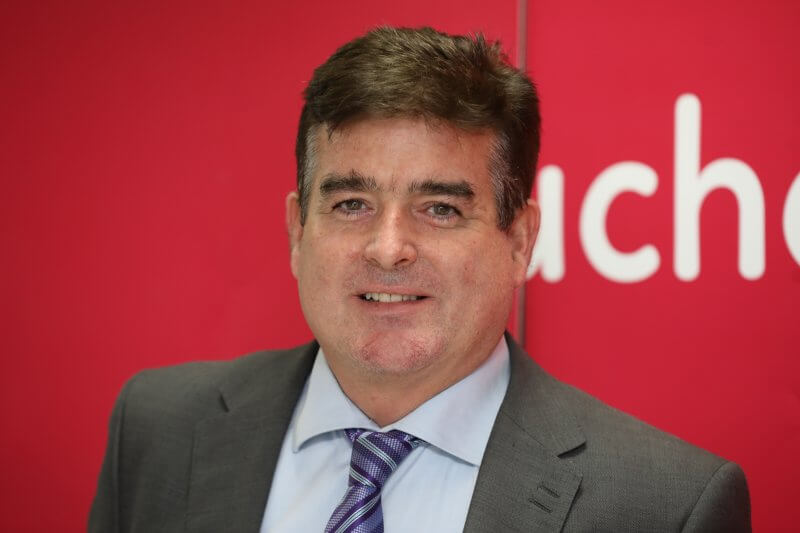VoucherSkout CEO and founder David Tobias believes his firm has cracked the delivery of Dubai two-for-one deals. The firm has integrated exclusively with Samsung Pay to offer a new way for consumers to save cash when dining out.

How does voucherskout work? Why’s your model better?
We charge between AED 5-25 for food and dining vouchers. The price variation is a function of potential savings between vouchers. A brunch for two people that would cost AED 900 becomes 450, then you pay AED 25 to redeem the voucher in the outlet. From a consumer point of view, they profit from us on their first usage. We don’t see ourselves as a deals company, but more of a technology platform.
What advantages does your platform offer over your competition?
From a consumer point of view, we’re almost unique. Whether you use the app or not, it costs nothing. Vouchers are there, it’s down to consumer choice, and they’re only charged when they enter their pin with a merchant. It’s a model that lends itself to the tourist market, because an annual subscription doesn’t necessarily make sense if you’re only visited a place for five days.
Our model encourages consumers to order more. It’s unlike the daily deal model, where a user has a pre-purchased voucher. Customer’s don’t always want to pay more than what they’ve bought in a one-off purchase. It also doesn’t give merchants the opportunity to upsell.
Do you believe that merchants that collaborate with third party apps often end up with next to no benefit?
We’ve tried to redress the balance more favourably to merchants. We believe a lot of platforms are quite expensive for them. Deliveroo charges 35% to its merchant partners. Is that sustainable for merchants? Some companies have complained that Deliveroo and other food delivery platforms are creating competing businesses for themselves by capturing behavioural data. There’s a self-motivated long term goal there.
You’ve integrated your platform with Samsung Pay.
Samsung reached out to us in March 2017. They’d been looking for a platform that could have API integration into third party apps and a pay as you go model. The advantage of pay as you go is that we don’t have to re-sign our customer base every year, and don’t have to sell on renewing, they’re already there. Samsung liked that, and thought it fitted well into their user base. There’s no annual commitment and it gives greater flexibility to users.
A version of our app is being pre-installed at the factory level, so we’re a new feature of Samsung pay. I think Samsung see an opportunity to create additional value to their customer base, and hopefully make them more loyal. It’s a means of monetising their reach.
There’s a good degree of longevity to our agreement with Samsung. They’re keen to use the integration, which has taken eight months. We’ve integrated with their back end in their South Korea headquarters, and have launched the partnership in Dubai. It’s the first market where Samsung has done anything like this with Samsung Pay.
How many merchants do you currently work with, and how do you plan to get more on board?
We currently have over 250 outlets, and we’re growing considerably. One of the biggest challenges is to have a significant audience. To get that audience, you need the best merchants. Partnerships like our one with Samsung are key. We’re scaling one side of the equation in terms of our merchant network. Over the last few months, we now have a pipeline of close to 300 merchants that should be coming on board. The process takes time, but the enthusiasm is definitely there. It becomes self-fulfilling – better merchants attract more good merchants.


